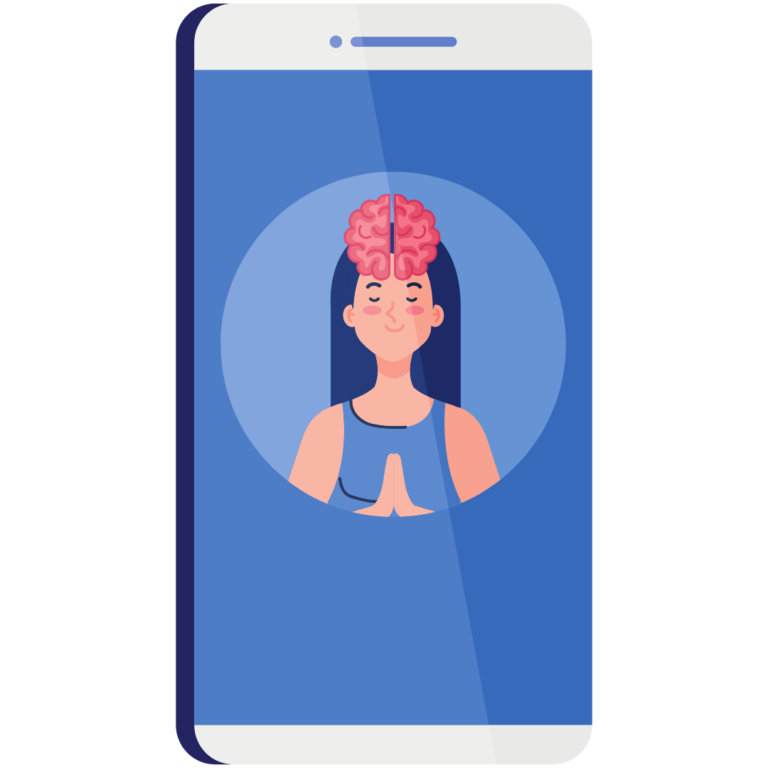Mental health apps have become prominent tools for maintaining good mental health in recent times. With the new digital age up0n us, these apps are inevitable to only grow in popularity. This is because they are easy to use and can be accessed anywhere and at any time by the users. Many of these apps claim to be an “end all be all,” with everything from anxiety and depression to sleep and stress management. They portray themselves as a replacement for therapy. With such brave claims, it is essential to ask: Do mental health apps really work?
Appeal of Mental Health Apps
The main advantage that mental health apps possess over traditional therapy is the wide accessibility they provide. They give access to mental health resources anytime, anywhere, breaking barriers to cost, stigma, and geographical limitations. Most apps come with a pack of different features, from guided meditation and mood tracking to cognitive-behavioral therapy exercises and professional counseling services (Chandrashekar, 2018).
These apps can be a private way for those most unlikely to use traditional therapeutic services to explore mental health support. Moreover, they can be extremely useful when paired with face-to-face therapy in terms of practicing new skills and tracking between sessions. This can be particularly useful for people with very busy schedules or those in areas where it’s hard to find access to mental health services.
Do Mental Health Apps Really Work?
Although the research evidence for the effectiveness of mental health apps is still developing, there is proof that if used properly, they can be very effective. In research published in the journal JMIR Mental Health, it was shown that apps offering CBT and mindfulness-based intervention strategies could reduce symptoms of anxiety and depression at a significant level.
This study pointed out that apps with interactivities or those that send personalized feedback are more helpful compared to those apps without these features (Bisconti N, Odier M, Becker M, Bullock K, 2024).
Mindfulness and meditation apps, in particular, have been popular, showing their potential to reduce stress and improve emotional well-being. Others rely on artificial intelligence to deliver CBT techniques to the user in real time, as is the case with Woebot (Woebot Health).
Not all apps, however, are created equal. The quality and the overall effectiveness vary greatly for mental health applications, and most lack any form of scientific research. It’s important to choose an app that’s been developed in collaboration with mental health professionals and has its roots in concrete evidence. Evidence-based frameworks in application development ensure users receive interventions that are more likely to be effective.
The Role of Apps in Augmenting Traditional Therapy
Though mental health apps might offer some helpful assistance, they cannot replace professional therapy. Instead, they are to be regarded as an instrument for augmenting conventional treatment. For those already in therapy, these applications can reinforce techniques previously learned in sessions with the therapist, provide ongoing support, and enable the tracking of progress and symptoms over time.
For instance, mood tracking apps may help both clients and therapists come to a better understanding of patterns and triggers of mood change, thereby offering the chance for more effective and targeted interventions.
Issues and Challenges
Many considerations and challenges associate with the potential benefits accruable from using mental health apps. In these apps, a user often enters very private and sensitive information; hence, concerns about privacy and data security are very major. Ensuring that apps have robust data protection measures and transparent privacy policies is important.
Furthermore, the mental health app market is unregulated, so users have to take the burden of selecting credible apps themselves. Reviews, endorsements from organizations on mental health issues, and recommendations by health experts can help in making informed choices (Chandrashekar, 2018).
Moreover, serious mental health conditions have complicated treatment plans of medication and therapy, among others, which would not be carried out using an app alone. In such conditions, the role of apps would complement professional care.
Conclusion
Mental health apps are promising for extending the reach of mental health support and engaging individuals in a drive to self-manage their mental health. They can not replace mental health therapy, but they can be useful as complementary tools to face-to-face therapy.
There is still more research to be done on the true effectiveness of apps so that apps actually deliver effective, evidence-based mental health services as the digital mental health field evolves. More precisely, the collaboration of technology with conventional mental health management ensures a more accessible and holistic approach toward mental health and well-being.
Works Cited
● Bisconti N, Odier M, Becker M, Bullock K. Feasibility and Acceptability of a Mobile App-Based TEAM-CBT (Testing Empathy Assessment Methods-Cognitive Behavioral Therapy) Intervention (Feeling Good) for Depression: Secondary Data Analysis. JMIR Ment Health. 2024 May 10;11:e52369. doi: 10.2196/52369. PMID: 38728080; PMCID: PMC11127134
https://mental.jmir.org/2024/1/e52369
● Woebot Health. (2024, July 16). https://woebothealth.com/
● Chandrashekar, P. (2018, March 23). Do mental health mobile apps work: Evidence and
recommendations for designing high-efficacy mental health mobile apps. mHealth. https://www.ncbi.nlm.nih.gov/pmc/articles/PMC5897664/
Written By: Nimai Pradeep, Mental H2O Youth Resource Writer


